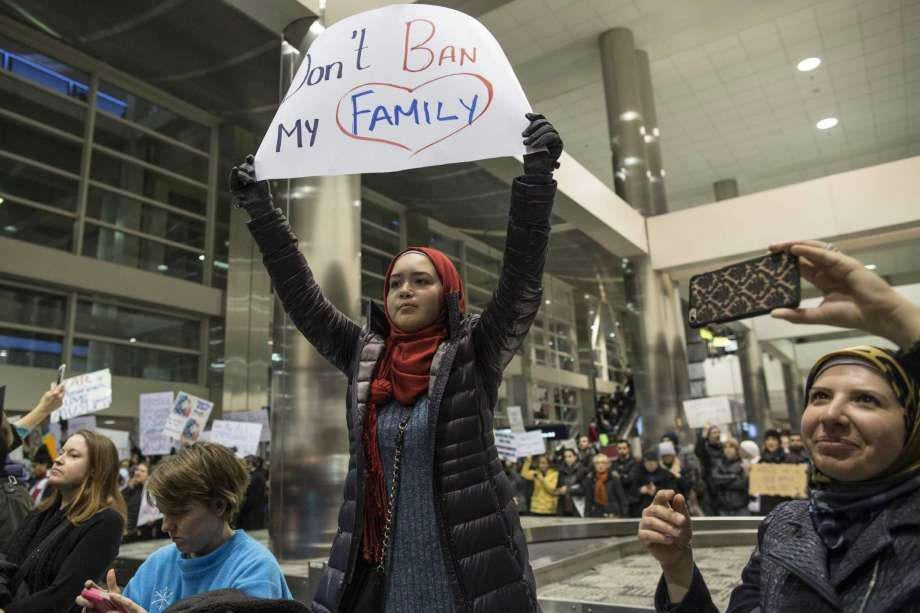Trump's new ban on travel from six mainly Muslim countries to face court challenge
It is the first of two challenges made in federal courts

President Donald Trump’s controversial revised travel ban is going to face scrutiny in court for the first time next week, nearly two months after a federal judge issued a last-minute halt on its implementation.
The ban in question, which would halt travel into the United States from six predominantly Muslim countries, was the second attempt to block travel by Mr Trump after a hastily rolled out initial executive order that brought thousands of angry protesters airports around the country. Two federal judges filed stays on the execution of this second ban, in the 4th Circuit Court of Appeals and in the 9th Circuit Court of Appeals. The 4th Circuit will consider the case Monday
“We do not fault President Trump for being politically incorrect. We fault him for being constitutionally incorrect,” Doug Chin, the Hawaiian attorney general, said of his decision to request that the travel ban be blocked by the court.
Monday’s case will be a bit unusual. Under normal circumstances, a three judge panel listens to arguments and makes a decision and will on occasion then call in the full court. But this hearing will skip the three-judge panel and will be heard by the full court immediately— minus any judge who recuses themselves. The court hasn’t skipped the three-judge panel and gone immediately to the full-court since 1998 when it considered a challenge to a law requiring minors to notify their parents before receiving an abortion.
It’s unclear which way the court, which was known as the most conservative appeals court in the nation before former President Barack Obama shifted it dramatically towards the centre. The court still generally sides with the government if administrations present a convincing case that the issue at hand is a national security concern, which is how Mr Trump has presented the executive order publicly.
“I think a lot depends on how the judges view the case,” Carl Tobias, a University of Richmond law professor, told the Associated Press. “Is this a national security case or is this an immigration case? Or is this a religious freedom case?”
Mr Trump’s travel ban, though not currently acting US policy, has led to a reduction of people coming to the United States in the past few months. The number of visitors dropped by more than 23,000 people in the first quarter of 2017. That drop, according to data from the Airlines Reporting Corporation, could mean that the US travel and tourism industry has missed out on more than $89.1 million in revenue.
Join our commenting forum
Join thought-provoking conversations, follow other Independent readers and see their replies
Comments